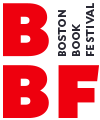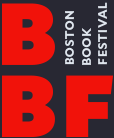At Home Boston: Oldest Friend and Other Essays
Boston Book Festival has launched a community writing project to capture this moment in history. We asked residents to send us stories of their experiences during the pandemic, from the acts of kindness by neighbors to the challenges in our biggest hospitals. We wanted to hear it all from all corners of the city.
We have been featuring stories on BBF’s Facebook and Instagram accounts, including the following selection of stories. Submissions will be accepted through June 30, 2020.
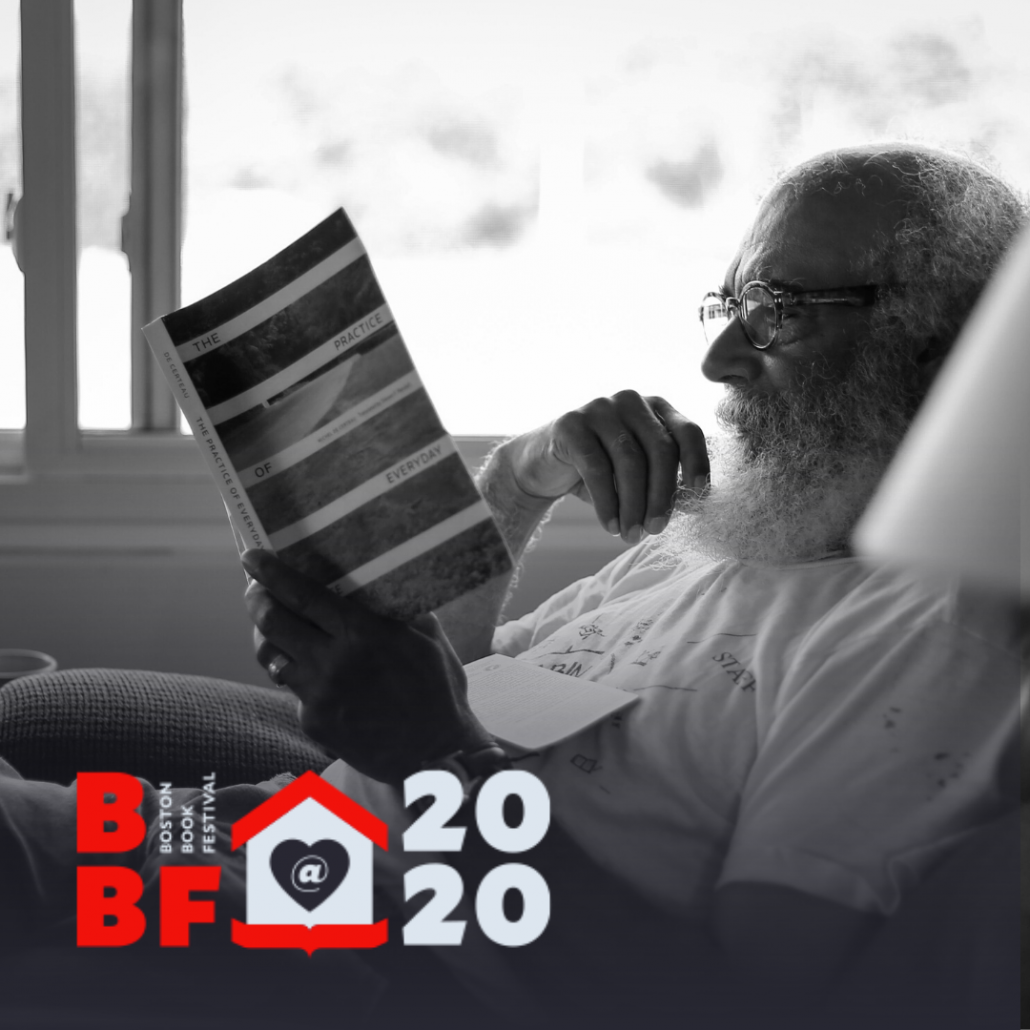
As I turn pages of my days, I await decisions on two manuscripts submitted via “Submittable.” Have they forgotten me? Do the readers for little magazines, writing contests, and publishers really take six months? In this “time out of joint,” with the suffering caused by the virus and the current state of political unrest, writing has afforded me an important mode of coping.
My work as an African American poet and philosopher has always concerned the human condition. I continue my “scribbling” knowing that like Black Lives Matter, books also matter, because they can change lives. And like many writers, as I await for things to get back to “normal” (if they ever do), I also wait for “Submittable” to pass judgment of my latest scribblings.
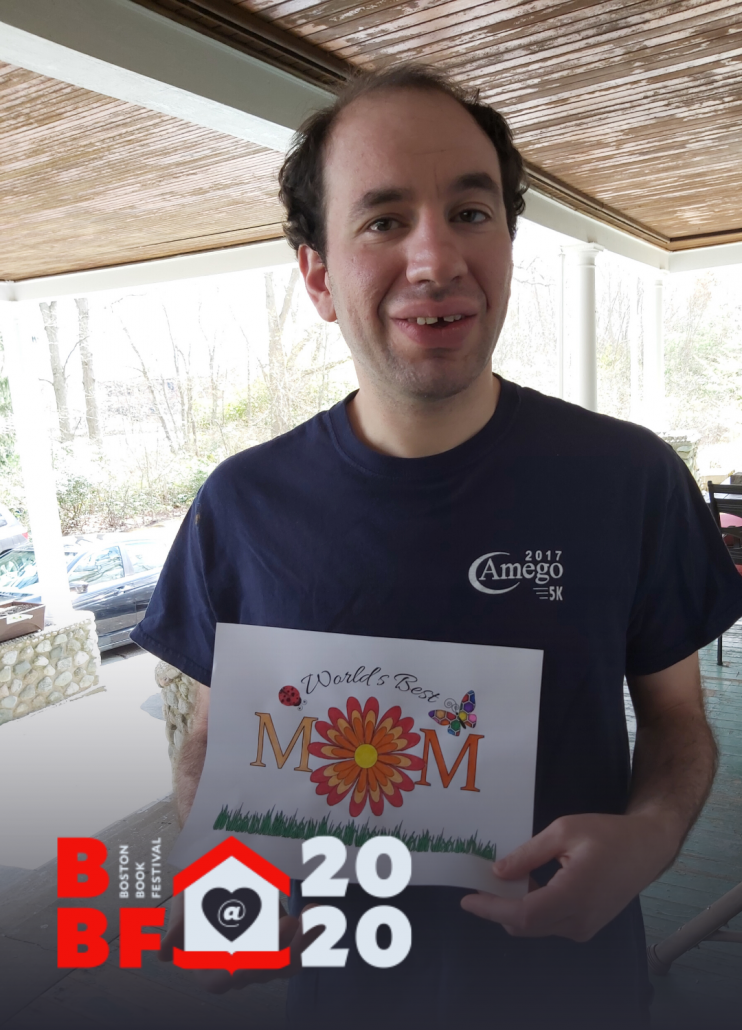
Life was going well for Isaac at his group home. He was communicating more, smiling more, and enjoying life. He loved his beautiful and encouraging caretakers. Every Saturday, I took him to Chabad. There were birthday cakes, fancy salads, and hot cholent. A rabbi with a long beard would always say, “Shabbat Shalom,” to everyone. Isaac and I took long walks. Several neighbors knew him and said, “hello” to him. Sometimes Isaac looked at them and said “hello” back.
One Friday afternoon, we didn’t come to pick him up. The Jewish sabbath was going to begin, but he wouldn’t be with his family. His father and I wouldn’t give him a special hug or a kiss good night. There would be no challah or beer-spiked cholent.
His caretakers stopped taking him bowling. They stopped going to restaurants. They didn’t go shopping. Instead everything was being delivered. They went on walks, but the caretakers told him to stay far away from everyone walking by. He was not allowed to say “hello.” The caretakers covered their faces with scary masks. It was hard to hear them. He couldn’t see them. Everything was different, but he didn’t understand why.
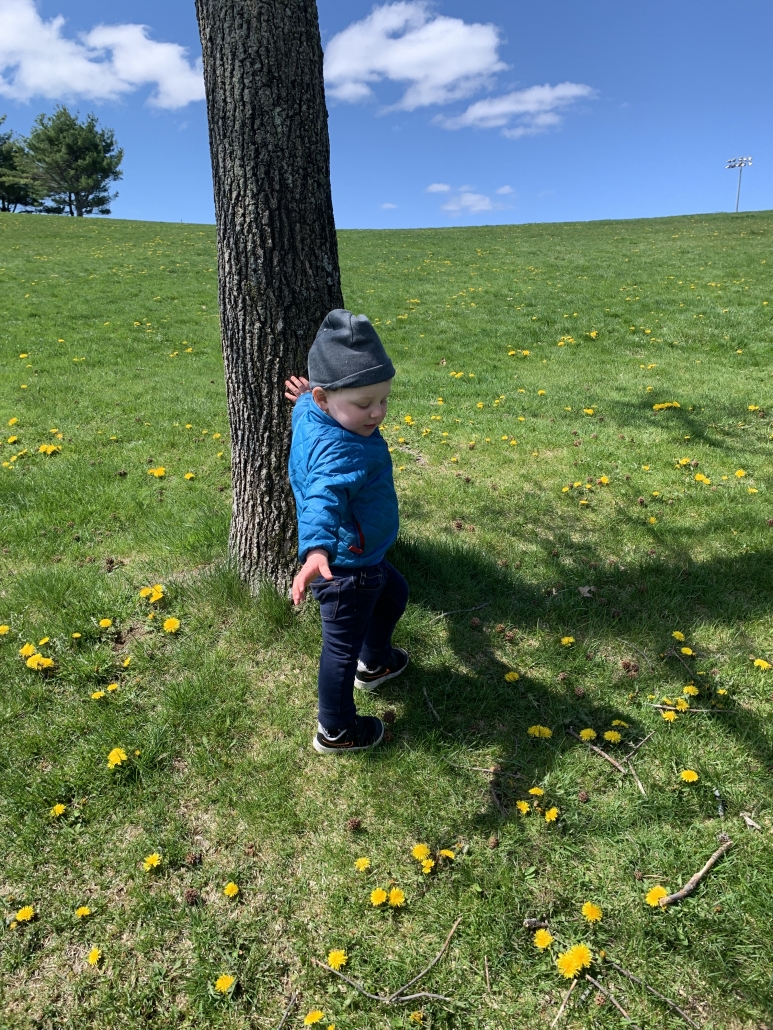
Could I manage? An active boy—eight hours a day? Days divided into increments of 10 minutes—20 if I were lucky? With no libraries or play structures? The relentless rain and cold battered us.
I dragged home a refrigerator box. His architect grandfather fashioned a hut with two operable doors and windows—a home for hide and seek, a camp for teatime with beloved animals. We donned rain boots and stamped in puddles. We pitched stones down street drains to hear “donk”. We stalked cement trucks. We tramped to the ever-deepening wetland at our local park where red-winged blackbirds cheeped and swayed on tall reeds. We threw ducks organic bread.
Then sun came and the earth broke open in warm surprise. We rolled down green hills; watched a garter snake with mutual wariness; visited the ant colony of evolving tunnels and arches. Suddenly, everything in my pandemic world was low, new, and hopeful.
Oldest Friend
On the first day of tenth grade, 1975, my pack of junior high girls ditched me. But Pam offered to share a locker. She’s my oldest friend.
On March 29th, 2020 she texted me, “Richard in ER. Intubated. Pray.” “Shit,” I text back.
Her sister prays to their late mother. “I told you I’d only come to you for the big stuff.” This is so big Pam can’t hear full sentences. Virus. Ventilator. High fever. Kidney failure. Pneumonia. Please pray. Transferred to Boston. Sorry. Absolutely no visitors.
For seven weeks she asks me, “Who will hold his hand?”
Secondary infections. More tests. Trach. Bad news. Still testing positive.
Good news. He’s so strong. She feels like she’s losing her mind.
You can do this, Richard. Prayers.
“I don’t want him to be afraid,” she texts.
“Me either,” I text back.
On May 15, I learn the phrase “100% on room air”.
Next week, Richard will leave the hospital for rehab. He’ll have to re-learn how to literally keep his chin up.
Still no visitors. Pam and I will meet on the lawn, six feet apart, wave to Richard through the open window, and share a Cosmo in a tiny plastic cup.
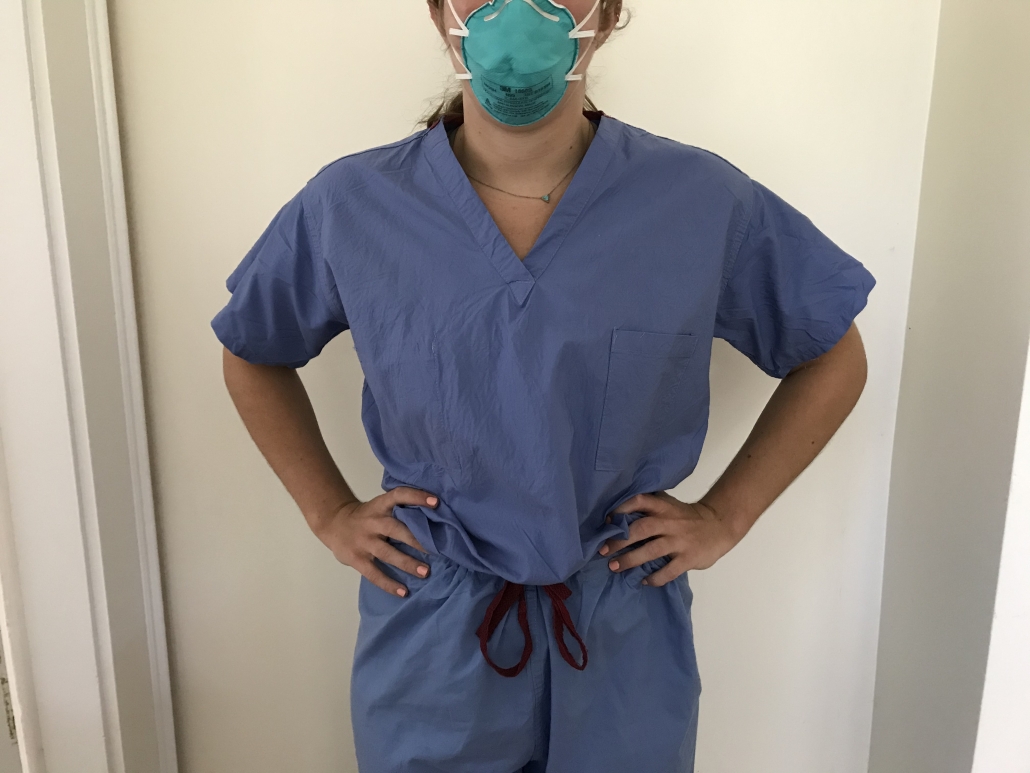
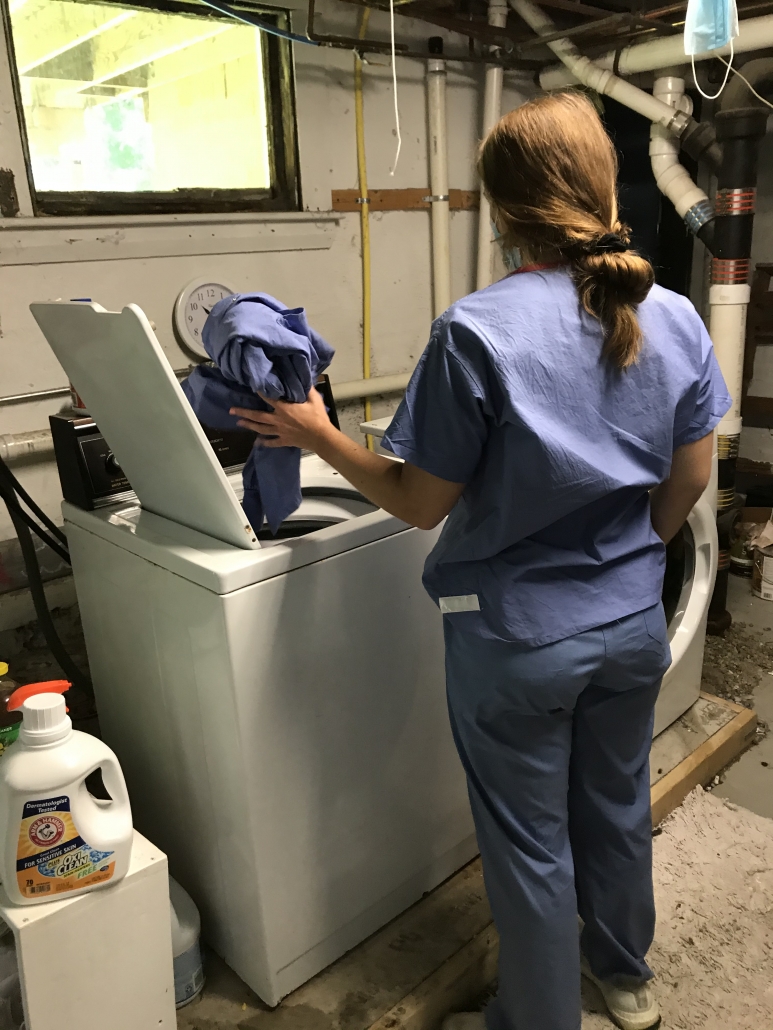
I flipped my first covid, my daughter texts. The ICU where she works just converted to serve patients with the virus. Turning them over helps them breathe.
I tell her dad, Bill. He sees his baby surrounded by germs that could kill her. Him, too. He’s halfway through chemo, a turtle without a shell.
I become the crazed bleach crusader of Arlington, upping the bleach-to-water ratio of my spray bottle. There is nothing I will not spray! My daughter’s re-entry routine will change. Strip at the washing machine. Everything in. No more eating together. No more together. Everywhere she goes, I will follow and spray.
Then Bill gets a cough, sore throat, and fever. He won’t call the doctor until after the weekend. We wear masks driving into MGH. In my head, TV news is saying drop him off for a test and you’ll never see him alive again.
I pull in. A Hazmat suit approaches the car. Bill! He reaches in. We get one last grip. He’s backed into an elevator. I toot the family honk in case he can hear. My eyes need windshield wipers. I hug the curves of the Charles driving home. Denial brings such relief
Tell us your story about these unprecedented times in less than 200 words. Read more about BBF’s At Home Boston community writing project, in partnership with the Boston Globe.
Follow Boston Book Festiva’s At Home Boston project on Twitter, Instagram, and Facebook. Share these stories using the hashtag #athomeboston.
Read more At Home Boston stories:
